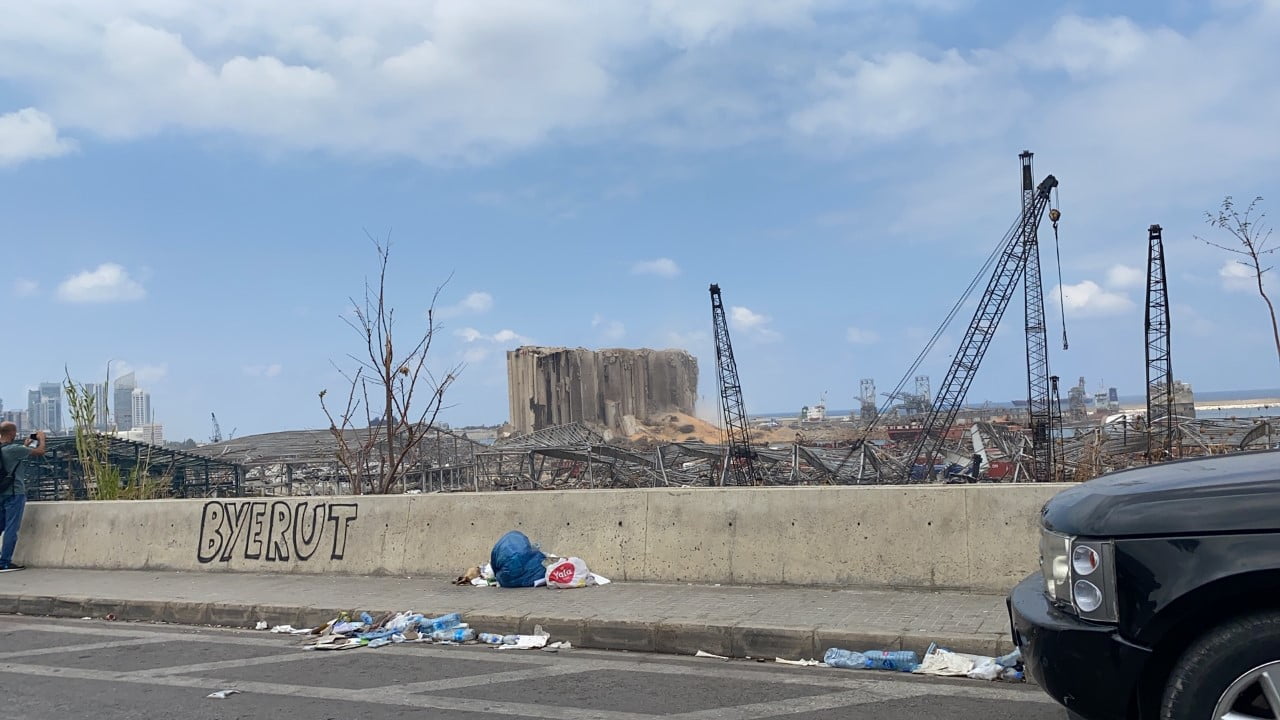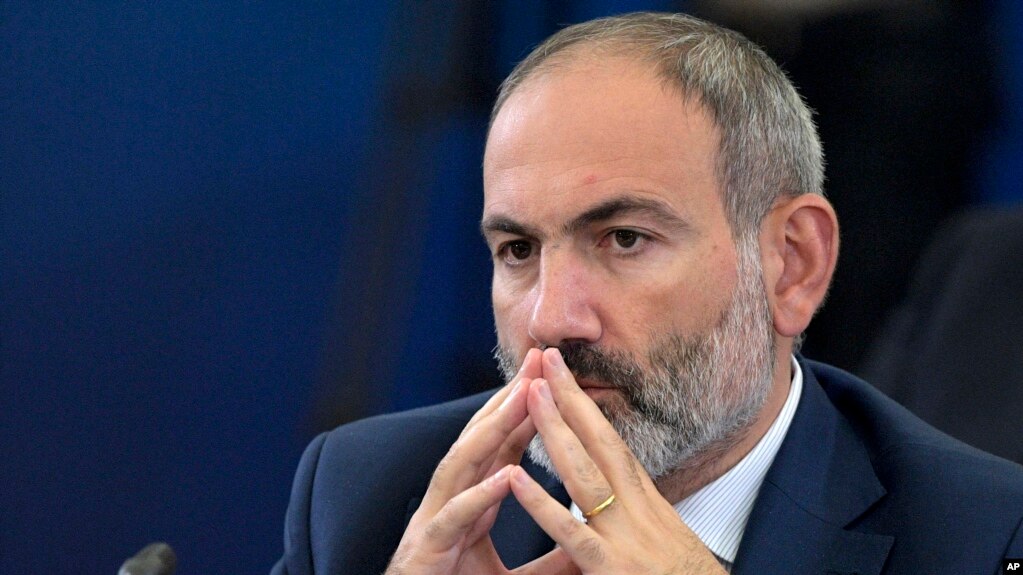
After the disaster in the port of Beirut earlier this month, Hezbollah came under suspicion of having been involved in the storage of the explosive ammonium nitrate. Online news platform WELT has exclusive information from Western secret services. According to this information, Hezbollah bought large quantities of the dangerous substance.
After the devastating explosion in Beirut the week before there were numerous indications that Lebanon’s Shiite Hezbollah militia repeatedly operated with the chemical that triggered the detonation in the Lebanese capital: ammonium nitrate, a salt that is used as an explosive, but also can be used for making fertiliser.
In the evening of the devastating blast, the Lebanese Army sealed off the port area. No one was allowed in or out. However, various sources who would like to remain anonymous, declared independently from each other to The Levant News that Hezbollah operatives were active at the site. Men were busy removing 'small and large' items from site of the blast and uploading them in trucks.
Hezbollah chief Hassan Nasrallah has since vehemently denied that his organisation had anything to do with the chemical supply that caused the explosion. But according to information from Western secret services that are available to WELT, Hezbollah received large deliveries of ammonium nitrate, which are closely related to the material detonated in Beirut.
As far as we know, the explosion was triggered on August 4, when a stock of 2,750 tons of ammonium nitrate caught fire, which had been stored in a hall in the port of Beirut since the end of 2013 or beginning of 2014. Who exactly had it delivered and who was responsible for storage is currently being determined.
But according to the secret service information that was made available to WELT, Hezbollah had considerable quantities of ammonium nitrate delivered to Lebanon at precisely that time. In January 2020, the then commander of the Kuds unit, General Qassem Soleimani, was killed by an American drone. The ammonium nitrate deliveries to Hezbollah must also have taken place under his suzerainty.
In the first transaction on July 16, 2013, a total of 270 tons of ammonium nitrate are said to have been delivered from Iran to Lebanon. The costs: the equivalent of 179,399 euros. On October 23 of the same year, another 270 tons of ammonium nitrate were delivered, this time for the equivalent of 140,693 euros. In the third delivery, the amount of ammonium nitrate delivered is uncertain, but it can be roughly estimated based on the costs.
Up to 670 tons of ammonium nitrate
A total of one billion Iranian rials was charged for the delivery on April 4, 2014 (around 61,438 euros). Measured against the values of the other two deliveries, this could have been between 90 and 130 tons. In total, the three deliveries are for a quantity of 630 to 670 tons of ammonium nitrate.
The freight from October 2013 is said to have been transported in flexible bulk containers by plane, presumably with one of the officially private Iranian airlines, which are considered the front companies of the Revolutionary Guard. One of them, Mahan Air, was deprived of the right to take off and landing in Germany last year – with an explicit reference to the activities of the Revolutionary Guard.
The other deliveries were made by sea or land, for example across the Syrian border. Hezbollah is a key ally of Syrian President Bashar al-Assad in his war against the opposition in his own country. Iranian arms deliveries to the Hezbollah often pass through Syria to Lebanon or units of the militia in Syria are handed over to them.
WELT was able to view the invoicing documents for the deliveries, but cannot completely check the nature of the information. However, they seem plausible in the context of knowledge of the logistics of Hezbollah and the Revolutionary Guards. Comparable transport routes and deliveries between the two organisations have long been known and in some cases also documented.
It is also known that Hezbollah is intensively promoted and equipped by the Revolutionary Guards. Soleimani was killed in January, Hezbollah openly mourned him as an idol and a key ally. But people who are said to have been directly involved in the deliveries are also well documented.
On the Iranian side, the deliveries are said to have been organised by the logistics department of the Kuds unit, which is headed by Sayyed Mojtaba Moussavi Tabar. Tabar does not appear in relevant documents, which is not uncommon for officers of the Guards who work under intelligence-like conditions.
Two other alleged participants in the deliveries are on the US sanctions lists. Behnam Shahriyari, who is said to be Tabar’s deputy, has been subject to US sanctions since 2011 because he supports Hezbollah, which has been designated a terrorist organisation in America and many European countries. He appears as the head of the Iranian transport company Liner Transport Kish, which apparently also handled the ammonium nitrate delivery to Hezbollah.
A man is said to have been responsible for receiving the cargo on the part of the militia in Lebanon, who in several respects almost fatefully represents the triangular relationship between Iran, Hezbollah and Syria. And for their explosive nature. Mohammad Qasir, 57, has been on the US list of sanctions to stop Hezbollah funding since 2018.
The Lebanese is considered an important liaison between his organisation on the one hand and Iran and Syria on the other. News photos from the Iranian agency Tasnim show him in the background during a conversation between Iranian President Hassan Ruhani and his Syrian counterpart Assad and Garden General Soleimani.
Qasir is said to have been responsible for Hezbollah’s logistics for 20 years and was also responsible for paying for the ammonium nitrate deliveries. But his person is apparently connected to the explosives in another way.
Qasir is said to be the brother of Ahmed Qasir who committed the first Hezbollah attack in November 1982. During the Lebanon War, he drove a truck into the headquarters of the Israeli army in Tire, killing at least 75 Israeli soldiers, 14 of their Arab prisoners and himself explosive in this attack: ammonium nitrate.
If the information from WELT on the deliveries is correct, then Qasir himself bought and passed on the material that killed his brother. What is certain, however, is that Hezbollah repeatedly used ammonium nitrate for attacks. In the records of the US National Intelligence Coordinator, there are four incidents involving ammonium nitrate among Hezbollah activities. The organization is said to have set up further stores of the material in Germany, Great Britain, Kuwait and Cyprus, among others.
It is uncertain whether the deliveries from the documents that WELT was able to see were directly related to the explosion in Beirut. The ammonium nitrate, which detonated on August 4, is believed to have unloaded a freighter flying the Moldovan flag in Beirut at the end of 2013, after it had to make a stopover in Beirut due to technical and financial problems on its journey from Georgia to Mozambique. So far it is unclear why the chemicals were stored in the port and neither transported nor destroyed.
These facts do not directly indicate Hezbollah as the recipient of this material. But intelligence suggests that Hezbollah was stocking large amounts of ammonium nitrate at precisely that time. That could have been one reason why the organisation would have wanted to keep that material in the port of Beirut if it hadn’t ordered it itself.
Explosives for primitive bombs?
A Western security expert, whom WELT asked about the information, considers it plausible in principle because it matches the secured information about Hezbollah’s handling of ammonium nitrate. It is unclear why the Revolutionary Guards should have supplied Hezbollah under such secret conditions with a material that is in principle freely available. This could be explained by the fact that the quantities involved were very large, the purchase of which would have raised suspicion.
The expert sees two possible reasons why the organisation might have stashed the explosives at that time. One: the war in Syria. Hezbollah was particularly deeply involved in combat operations in 2013/2014. The situation of the regime forces on whose side she fought was particularly critical. It was the time when Assad and his allies also used primitive bombs against advancing rebels. The ammonium nitrate could have been intended for this.
Also conceivable: At that time, Hezbollah expanded its fighting positions on the Israeli border and also drove tunnels towards Israel. The ammonium nitrate could have been intended for attacks against Israel using these tunnels.
This article first appeared in WELT, with additional reporting by The Levant News.






